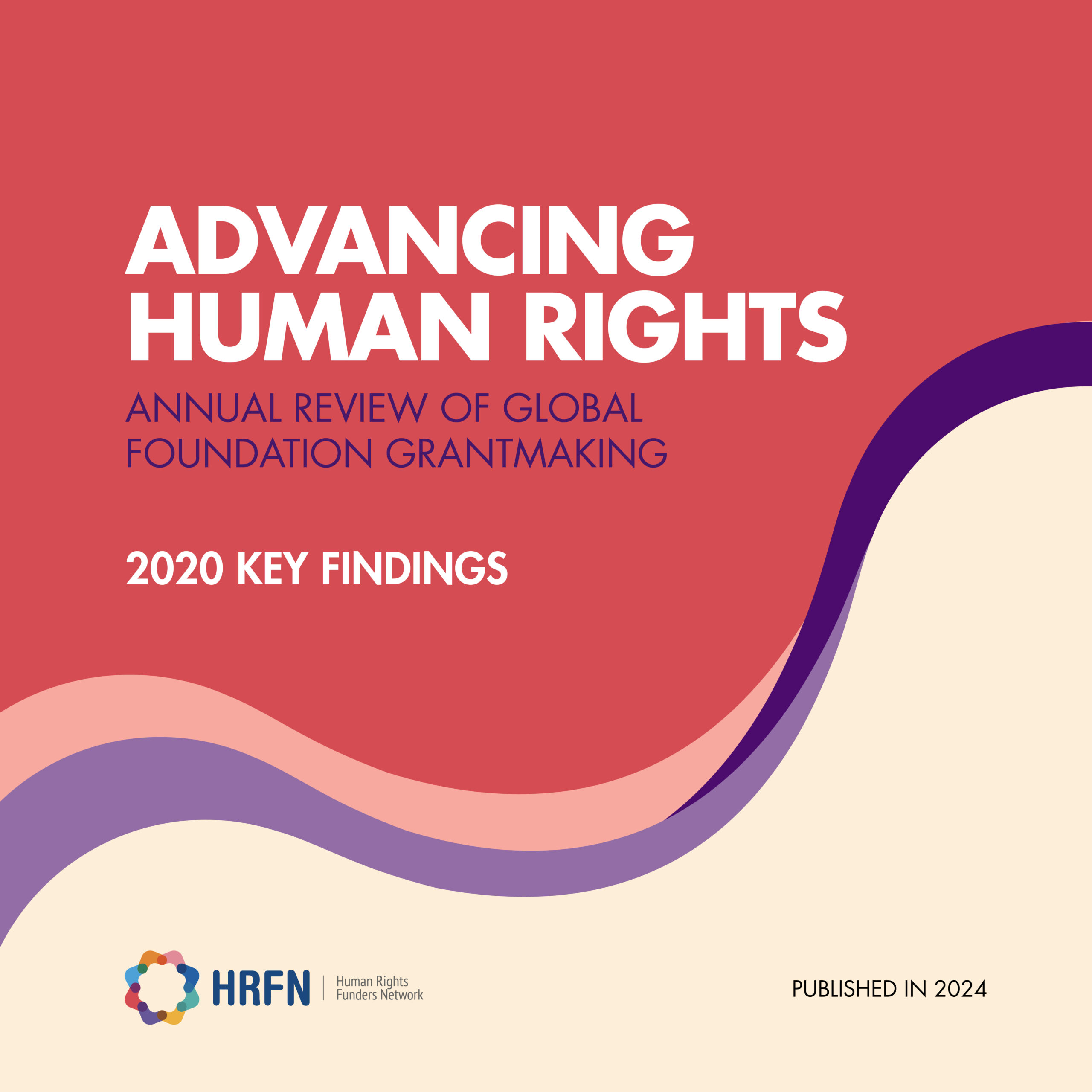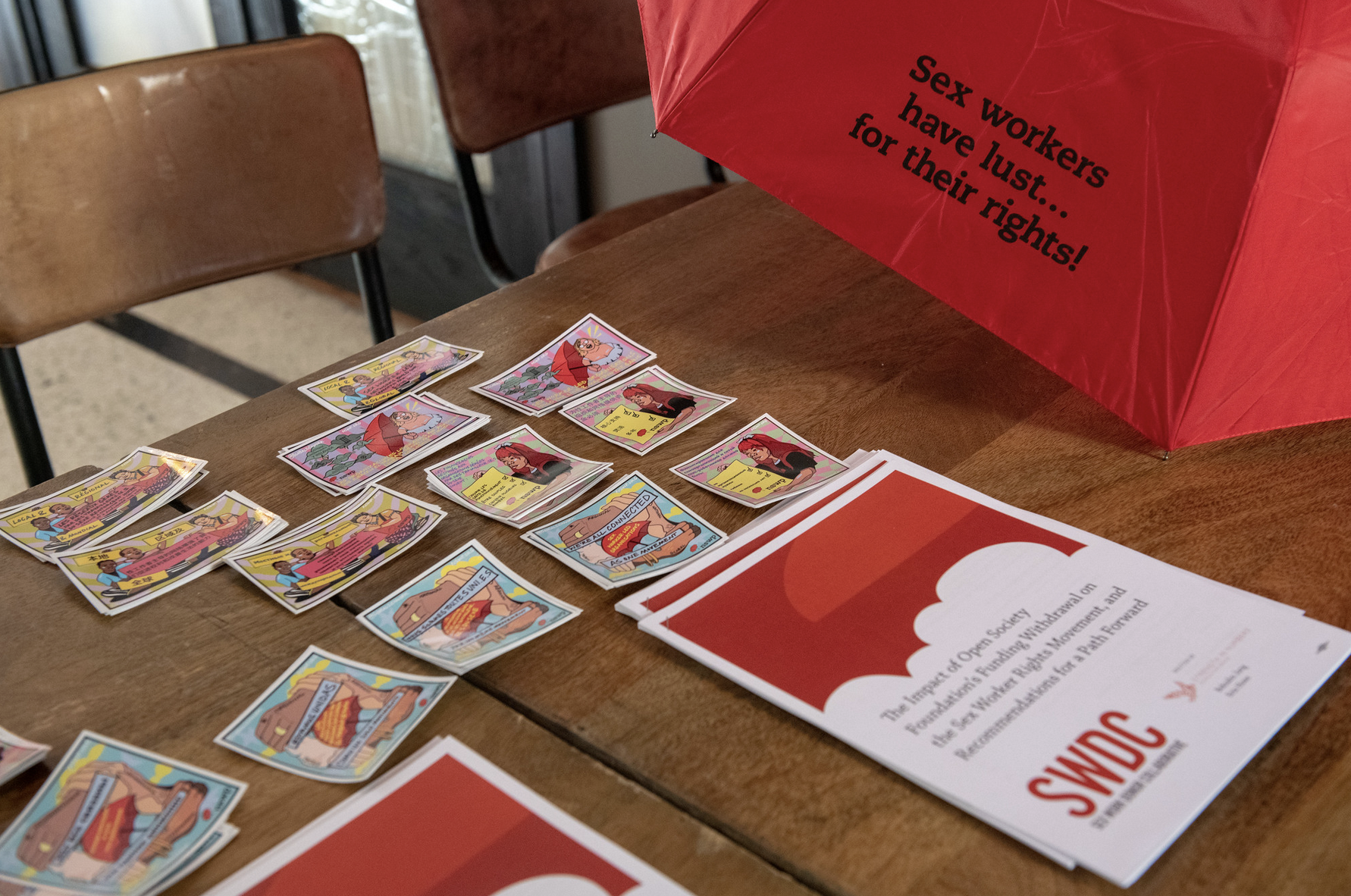The ethics of resource mobilisation: Confronting the discomfort
By Maria Alejandra Rodriguez Acha, Co-Executive Director at FRIDA | The Young Feminist Fund, and Kinga Wisniewska, Resource Mobilization Manager at FRIDA | The Young Feminist Fund
It is no mystery to those of us in international human rights philanthropy that the mobilization of resources to support social movement and grassroots organizing involves uncomfortable contradictions we have to deal with. We often need to access resources where they are most available in order to provide support. This tends to be in sources of wealth that have historically benefited from systematic practices based in neo-colonial, capitalist exploitation of the most marginalised — the very groups we seek to support.
Economic inequalities pave the way for violence and oppression against numerous social groups, especially women, girls, trans and intersex people, and black and brown bodies. Thus, a strict commitment from philanthropy to change this reality should be based on redistribution, ensuring that unrestricted and flexible funds are flowing directly into the hands of the most affected communities around the globe fighting for a fairer system.
Although some donors of wealth recognize the privileges they took advantage of throughout the years, and are engaged in abandoning these patterns, they remain limited. Many of the richest people in the world continue to be involved in socially, economically and environmentally harmful practices and, if they engage in charitable activities, it is often guided by self-interest, from paying less taxes to improving their reputation. They can adopt patronizing approaches and burdensome requirements during grantmaking processes that are nearly impossible to be met by groups directly dealing with the effects of injustice in their communities.
The ethical dilemma that progressive philanthropists confront is: how do we ensure sufficient resources for our partners, without being complicit with these harmful systems? How do we mobilize wealth, without legitimizing problematic practices and entities that have accumulated resources and power?
We at FRIDA have been faced with these questions throughout our 10-year journey. Resources to support women’s rights, gender justice work, and feminist movement building, particularly that which is led by women’s and feminist organizations, are scarce. Only less than 1% of the bilateral funding for gender equity reached women’s rights organizations in 2014 – the year with the biggest amount of donations until 2018 – and ally funders are gradually increasing, but still remain limited. As a result, we can find ourselves in the position of deciding whether to start a partnership with a donor that may not be fully aligned with our principles. This can become an increasing challenge with the need to sustain and expand our work and our grantmaking budgets.
Over time, our strategy to face this dilemma has been to have honest internal conversations within our community, asking questions to grantee partners, advisors, board and staff members. This year, we took one step further, and through a community-wide consultation process, collectively built our own Resource Mobilisation Ethics Policy, launched in early August, to guide how we navigate the ethics of our fundraising, reflecting views and voices from FRIDA’s community.
Collectively defining our “red lines” and advocating for change
Participation has always been a core value and a commitment for FRIDA. From the onset, our participatory grantmaking model centers the decisions of young feminist organizers on where grants should go. Due to the Resource Mobilisation Ethics Policy and the processes it lays out, we are setting up a Resource Mobilization Taskforce with collective representation. This will create a space where feminist activists can also contribute to decisions regarding the origin of money. The Taskforce is to be consulted, in some cases, and make final decisions between receiving a grant or not, in others. If FRIDA deems it acceptable or strategic to enter into a relationship with a donor that does not fully reflect our values, it will be with the knowledge of and previous discussion with the collectives and organizations that we partner with.
The policy has also allowed us to lay out our “red lines” as a community. We have collectively decided that FRIDA will walk away from a donor that manifests one or more of the identified non-negotiables characteristics. This includes funders that directly engage in activities that harm communities that FRIDA supports; donors that require changes to our participatory grantmaking model or significant modifications in our strategies, policies and processes; impositions of values and activities for grantee partners; funders that campaign against our principles and mission, and that violate or have violated human and/or environmental rights; and philanthropists that have never addressed the historical injustices that they may have been involved in.
As an activist and feminist fund, FRIDA focuses significant efforts on philanthropic advocacy, calling for an increased offer of flexible core, participatory and sustained grants for activists, and trust-based grantmaking. We believe that progressive funders have a key role to speak up for better practices within our ecosystem, in order to transform philanthropy as a whole into a stronger accomplice for social justice. The participatory Resource Mobilisation Ethics Policy allows us to work to influence donors where possible and better communicate to current and potential funders what FRIDA and young feminist activists understand as appropriate and desirable processes, and what values we hold close.
The importance of discomfort
The consultations for the development of the policy took place last May. FRIDA carried out a series of nine virtual meetings with grantee partners, advisors, staff and Board members, with 90 participants overall, in seven languages. In addition, an online survey received answers from more than 50 respondents. We shared information on FRIDA’s finances, and background on current and prospective donors to all community members, also in seven languages, to support more meaningful discussions. This consultative process brought an incredible wealth of feedback, reflections and learnings. Yet, what it did not bring was consensus.
Young feminist organizers are not a homogenous group, nor should they be seen as such. Their experiences and perspectives are unique to their local contexts, values and backgrounds — a diversity that is an extraordinary strength. The politics of money is not an easy or comfortable topic of discussion, activists often distrust those who hold monetary wealth — for valid reasons. Money is emotionally charged in an unequal world. But avoiding these difficult conversations is an exercise of privilege that we do not want and cannot afford to reproduce. It is essential that progressive philanthropy faces these debates head on – to recognize and transform the harmful power dynamics that funders can reproduce, and to strive to shake the foundations of the unjust system we operate within.
The Resource Mobilisation Ethics Policy didn’t accomplish any single formula or any clear-cut answer to the resource mobilization dilemma. However, it has provided a clearer understanding of our limits and an agreement on the criteria, procedures and structures to collectively evaluate the case-by-case funding partnerships and grants that FRIDA applies to, or accepts. Ultimately, collectivizing processes enables trust building, transparency and accountability to the movements we seek to support. It makes us stronger.
Through sharing this experience, we put forth an invitation to reflect on ways we can continue to work together, as progressive philanthropists, to confront the difficult issues and put the decision-making in the hands of those building the movements we support every day. We need to demystify the taboo around money – talking about it within our communities can be uncomfortable, but it’s vital. It can help us continue to change the philanthropic ecosystem, and to ultimately shift power, and more and better resources, for greater redistribution in an unjust world.



